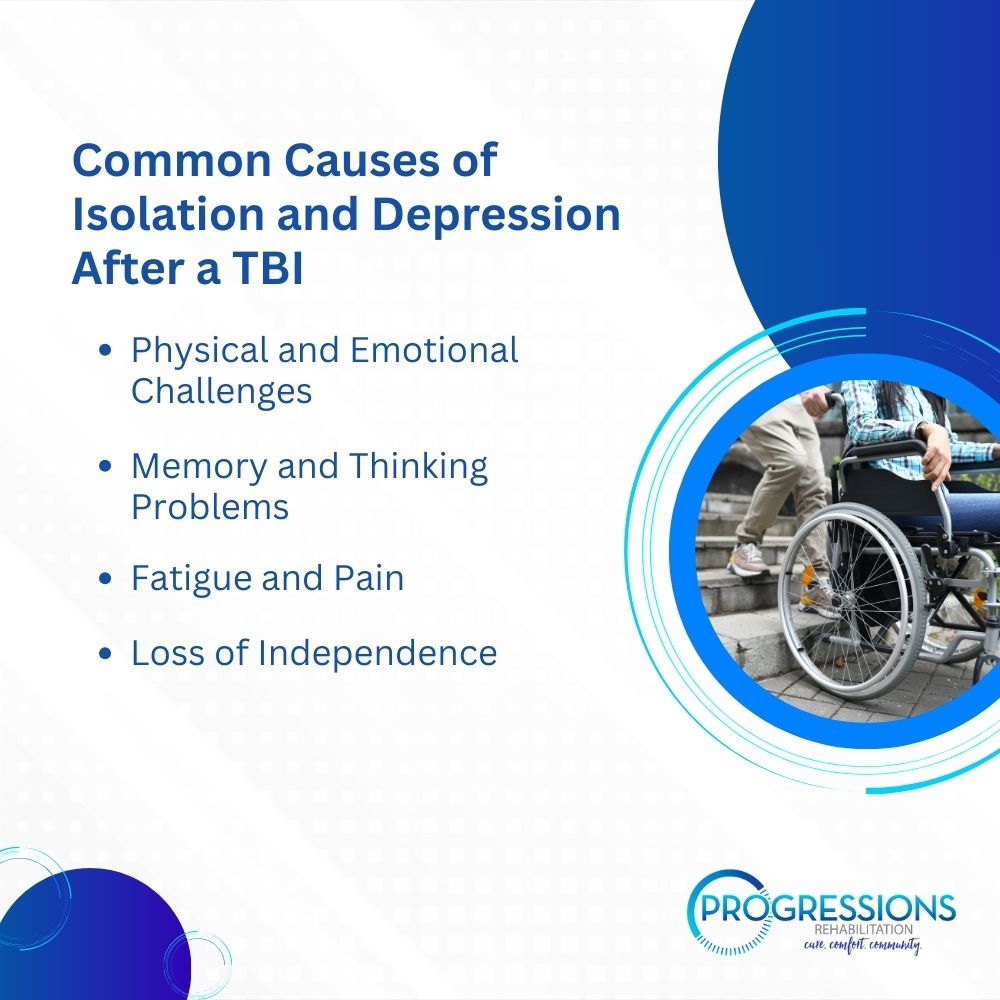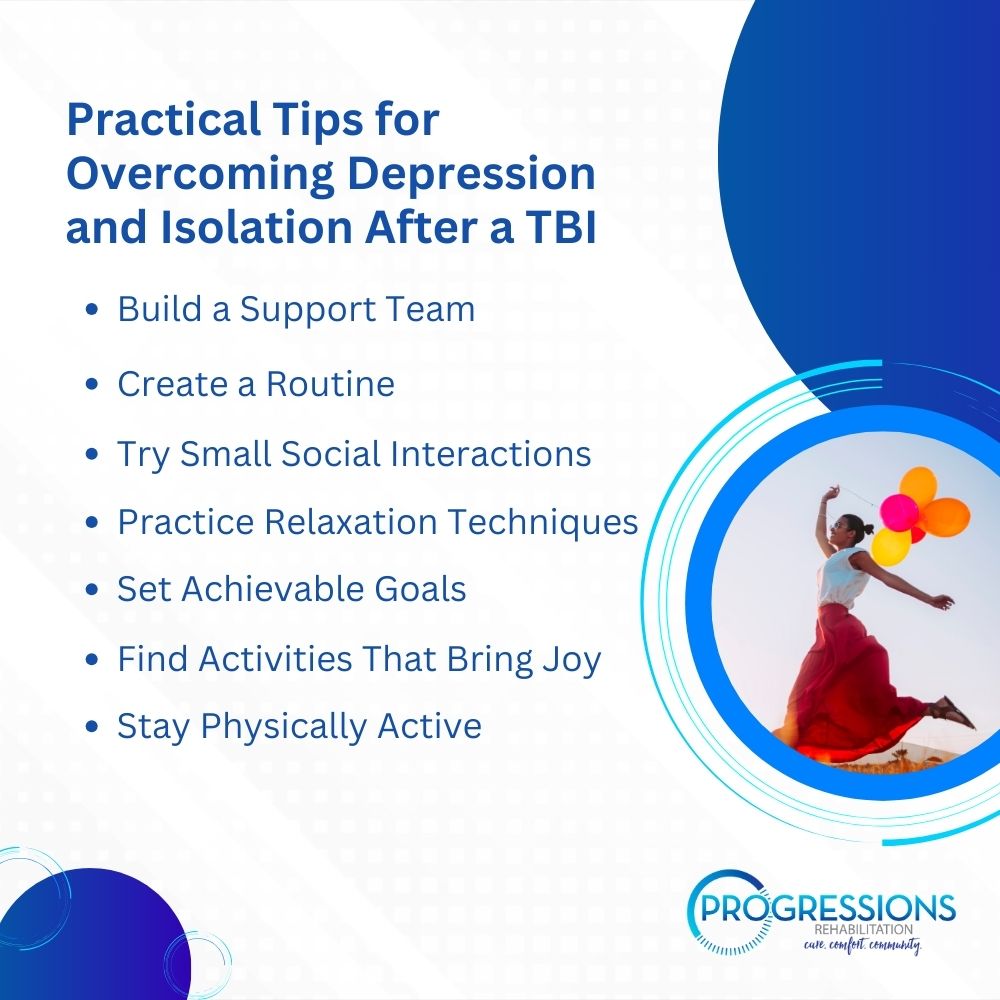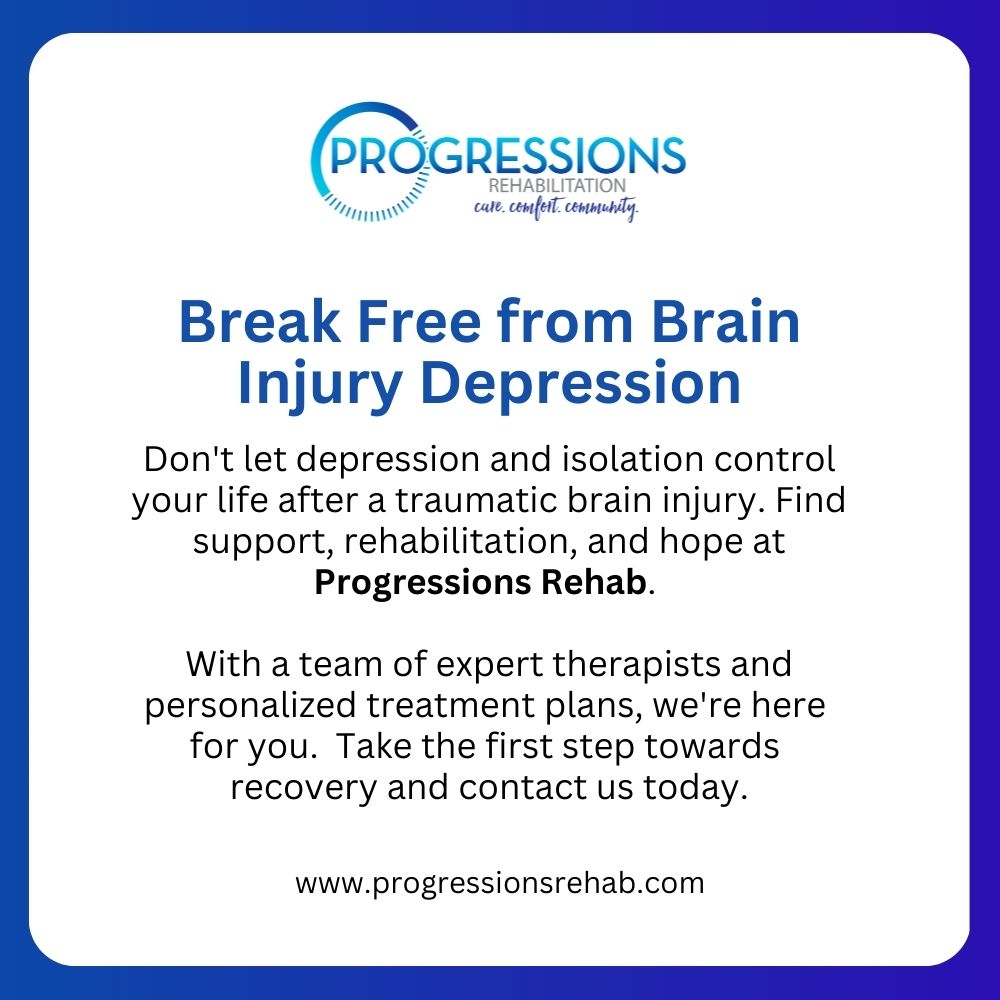Traumatic brain injury (TBI) is a serious condition that affects millions of people around the world. It occurs when a sudden blow to the head or a penetrating injury causes damage to the brain. Depending on the severity, TBI can result in a wide range of physical, cognitive, and emotional problems.
One of the most common and challenging issues faced by individuals with TBI is depression and isolation. It can be difficult to understand these feelings and how they relate to TBI, but in this blog, we will explore this topic, so let’s dive in to learn more about depression and isolation after traumatic brain injury.
Why do Depression and Isolation Often Occur After a TBI?
A TBI can change how the brain works, making it challenging to do things that once felt easy. Some people need help with speaking or understanding words. Others find remembering things, controlling emotions, or making decisions difficult. These changes can make keeping up with friends, family, or work challenging. Over time, feeling misunderstood, different, or frustrated may lead to feeling lonely and sad.
Common Causes of Isolation and Depression After a TBI

After a TBI, many people experience challenges that make it problematic to feel connected to others. Whether it’s trouble moving, remembering, or controlling emotions, these changes can lead to sadness and isolation.
Let’s look at some common reasons why these feelings occur:
- Physical and Emotional Challenges
TBIs can affect movement, balance, and coordination, making walking, speaking clearly, or joining activities tough. At the same time, a TBI can also cause mood changes, like sadness, anger, or anxiety. These emotional shifts, combined with physical difficulties, can make socializing overwhelming and lead to feeling more isolated.
- Memory and Thinking Problems
Difficulty remembering things, such as names, dates, or even where you are, can be frustrating. This can lead to embarrassment and avoidant behavior, making it harder to interact with others.
- Fatigue and Pain
Many people with a TBI feel tired or have headaches and other physical pain. When feeling this way, going out, joining activities, or even having long conversations is harder.
- Loss of Independence
Losing the ability to do things independently, like driving or working, can make you feel less in control. Relying on others for help can bring up feelings of frustration, sadness, or shame, which can contribute to social withdrawal.
Practical Tips for Overcoming Depression and Isolation After a TBI

While recovering takes time, there are ways to cope with these feelings of isolation. Here are some practical tips that can help bring a sense of hope and connection back to life:
- Build a Support Team
After a TBI, it is important to stay connected with people who understand and care. This support team might include family, close friends, or even support groups for people with TBI. Talking with others who have similar experiences can help reduce the sense of disconnection.
- Create a Routine
Keeping a regular daily routine can give life structure and purpose. Having a set time to wake up, eat meals, exercise, and go to bed can provide stability and make each day more predictable and manageable.
- Try Small Social Interactions
Socializing can be tiring, so start small. Short visits, phone calls, or video chats with one or two friends can make building relationships more manageable. Even texting a friend or writing a letter can bring comfort and help you feel connected.
- Practice Relaxation Techniques
Stress can worsen emotional struggles. Learning ways to calm down, like deep breathing exercises or meditation, can help. Even listening to soothing music or taking a quiet walk can improve mood and outlook.
- Set Achievable Goals
Setting small goals can bring a sense of accomplishment. These goals might be as simple as reading for 10 minutes, writing in a journal, or going for a short walk. Celebrating these small successes can boost confidence and motivation.
- Find Activities That Bring Joy
Hobbies or calming and enjoyable activities can give life meaning and reduce loneliness. These include drawing, playing a musical instrument, reading, or gardening. For many people with a TBI, creative activities can provide an outlet to express emotions.
- Stay Physically Active
Even gentle exercise, like stretching or walking, can improve mood and help recovery. Physical activity releases chemicals in the brain that help reduce depression and improve overall well-being.
Finding Hope for the Future
While overcoming depression and isolation after a TBI can be challenging, recovery is possible with the proper support and tools. With the appropriate support and tools, recovery is achievable.
Reaching out for help, setting small goals, and finding activities that bring joy can all play a crucial role in healing. At Progressions Rehab, we understand the challenges of a TBI and offer comprehensive medical support and assistance to help patients along their journey to recovery. While healing takes time, every step towards connecting with others and finding happiness is a step towards feeling better.
Get Specialized Care at Progressions Rehab

If you or someone you care for is struggling with depression and feelings of isolation following a traumatic brain injury (TBI), it is essential to seek out the necessary support. Progressions Rehab specializes in neuro rehabilitation in Michigan, offering support and treatment to help those with TBI.
Whether you are in search of traumatic brain injury long-term care facilities near me or require assisted living for a brain injury, our facility is the perfect option. Our caring team is trained to understand the specific struggles of TBI patients. It is committed to offering personalized and empathetic care that helps them regain a sense of connection with their lives and loved ones. Choose Progressions Rehab for the care and support you or your loved one needs to thrive after a TBI. Contact us today!
***
The material on this site is for informational purposes only and DOES NOT CONSTITUTE THE PROVIDING OF MEDICAL ADVICE, and is not intended to be a substitute for independent professional medical judgment, advice, diagnosis, or treatment. Always seek the advice of your physician or other qualified healthcare provider with any questions or concerns you may have regarding your health.



